This website uses cookies
We use cookies to ensure that we give you the best experience on our website. If you continue to use this site we will assume that you are happy with it.
“Welcome to the party.” Concluding Property Law: Comparative, Empirical, and Economic Analyses (Cambridge University Press, 2023), this sentence refers to the abundant fruits of author Yun-chien Chang’s ten-year effort to analyze property law around the world. It could also refer to the convivial celebration of the book that took place at the Law School on September 18.
Chang is the Jack G. Clarke Professor in East Asian Law and director of the Clarke Program in East Asian Law and Culture, a core faculty member of the Cornell East Asia Program, and president of the Asian Law and Economics Association. His Property Law is the first book of its kind, employing a unique, hand-coded data set encompassing nearly 300 dimensions on the substance of property law in 156 jurisdictions to describe the convergence and divergence of key property doctrines around the world.
Moderated by Oskar Liivak, Professor of Law, the celebration featured commentary by Lee Fennell, University of Chicago Law School’s Max Pam Professor of Law; Thomas W. Merrill, Columbia Law School’s Charles Evans Hughes Professor of Law; and Stewart Schwab, Cornell Law’s Jonathan and Ruby Zhu Professor of Law.
Opening the event, Chang noted that the upshot of the first-ever large-scale property data set assembled for the book is that “we could not only do comparative law at an unprecedented scale but also . . . do some machine-learning statistical analysis to get a better picture [of the similarities and differences between countries], and, finally, use the variation of property doctrines across jurisdictions as a springboard for some normative analysis.”
“This is an incredible book,” said Fennell, who emphasized the “astounding scope and ambition of this work . . . certainly the most comprehensive compilation ever to be assembled,” before digging into Chang’s chapter on good-faith purchase and exploring the “eternal triangle of law” through the case examples O’Keefee v. Snyder (NJ 1980), Phelps v. McQuade (NY 1917), and Kotis v. Nowlin Jewelry (Tx. Ct. App. 1992).
Merrill highlighted Chang’s “brilliant innovation” of disaggregating property law into distinct problem areas and then creating “prototypes” of each jurisdiction’s solutions that could be compared. “It’s a cliché in these sessions to say, well, ‘I learned a great deal from reading your paper,’” he said. “Usually, it’s a lie. But in this particular case, I think it’s a very honest statement that anybody that spent a lot of time teaching and writing about property would learn an incredible amount from reading Yun-chien’s book.”
Schwab focused on some of the many challenges Chang had to wrangle while creating the book’s unprecedented data set, including the wide variety of languages among the codes he analyzed; the dispersed nature of many systems of property laws and statutes; and the disparate terms and definitions used by different jurisdictions. He added, “This is a technical book . . . a painstaking effort and a lot of detail. But Yun-chien’s humility, humanity, and humor come out with the reading of this book.”
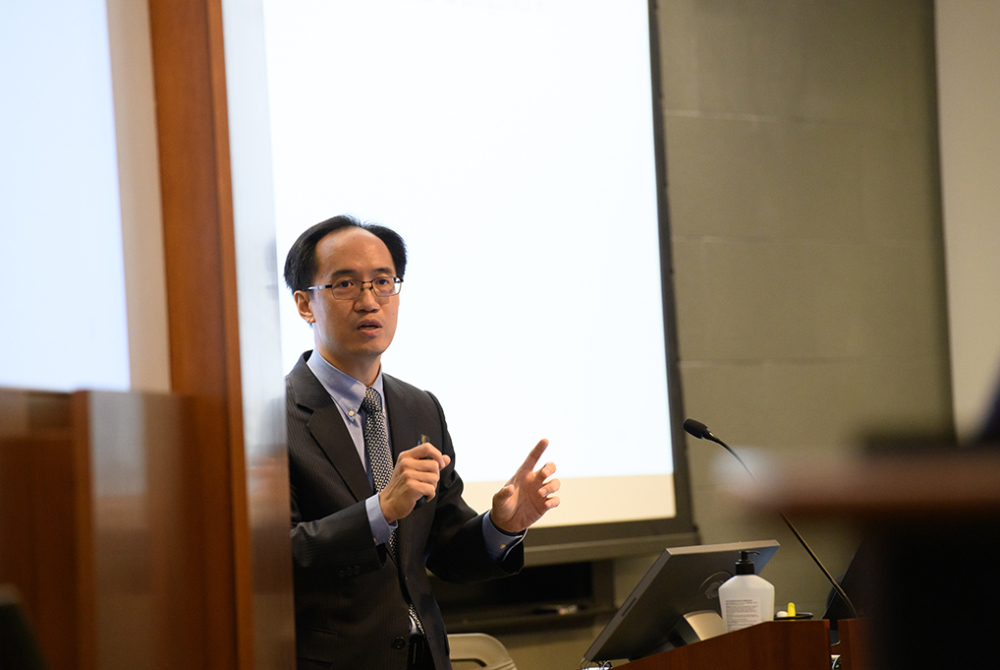
Yun-chien Chang, the Jack G. Clarke Professor in East Asian Law and director of the Clarke Program in East Asian Law and Culture, discusses his new book Property Law: Comparative, Empirical, and Economic Analyses
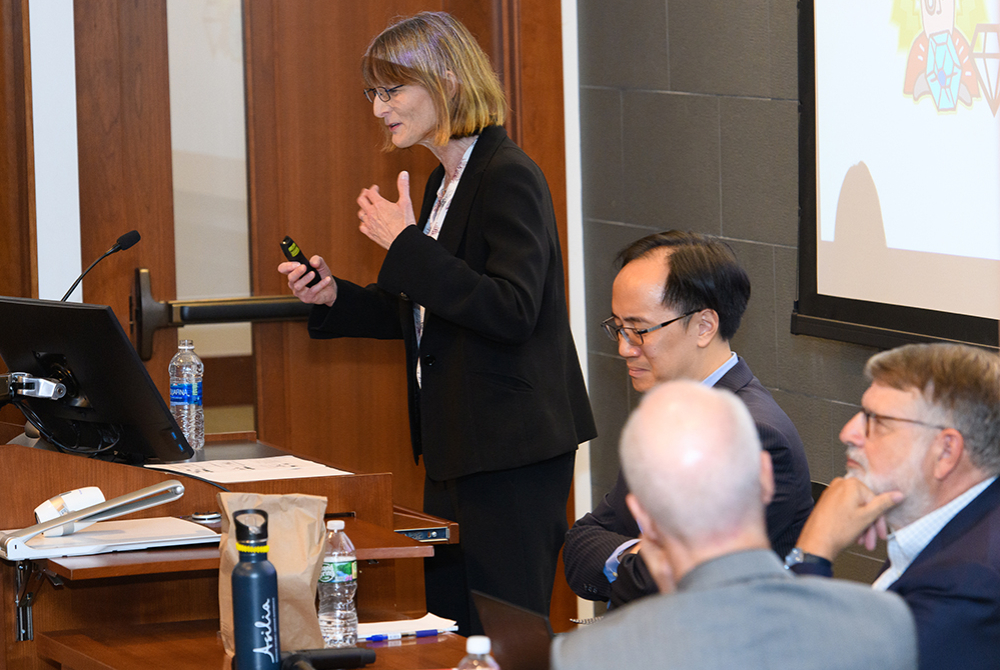
Lee Fennell, University of Chicago Law School’s Max Pam Professor of Law
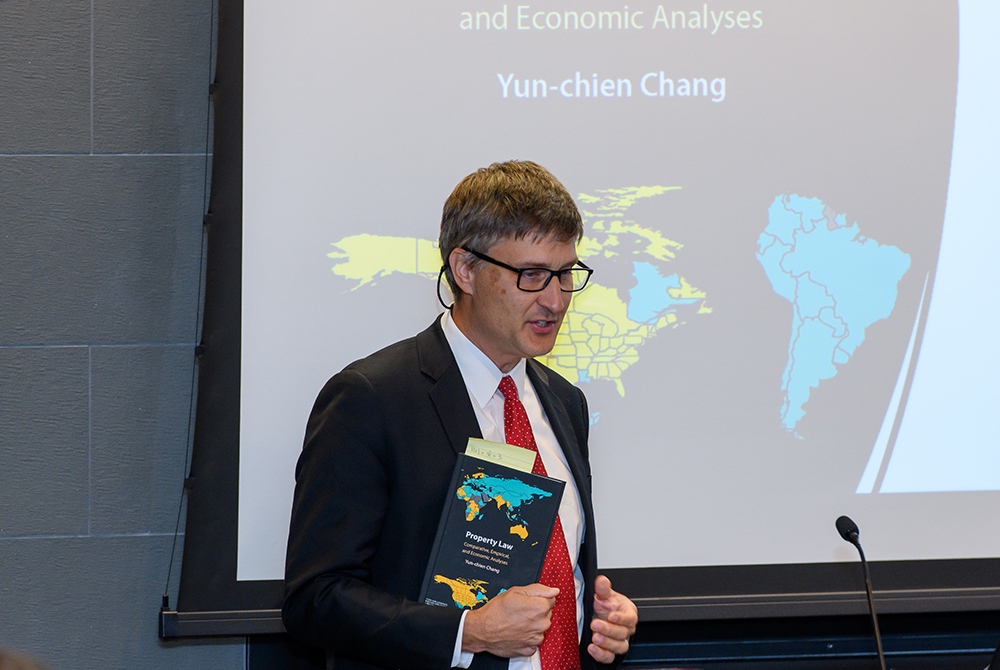
Oskar Liivak, Professor of Law
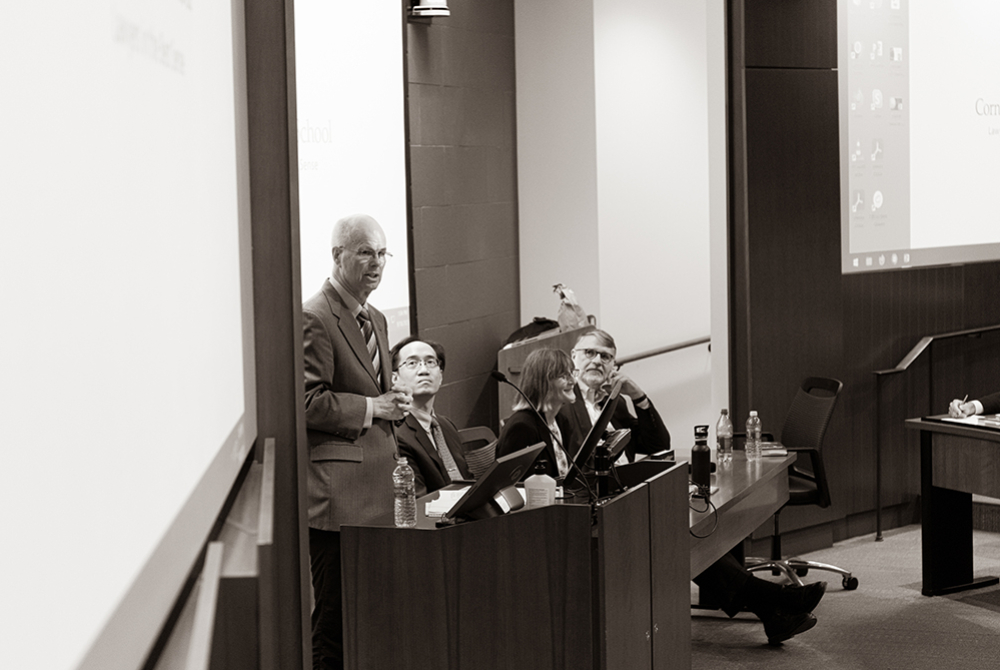
Stewart Schwab, the Jonathan and Ruby Zhu Professor of Law

Yun-chien Chang, the Jack G. Clarke Professor in East Asian Law and director of the Clarke Program in East Asian Law and Culture
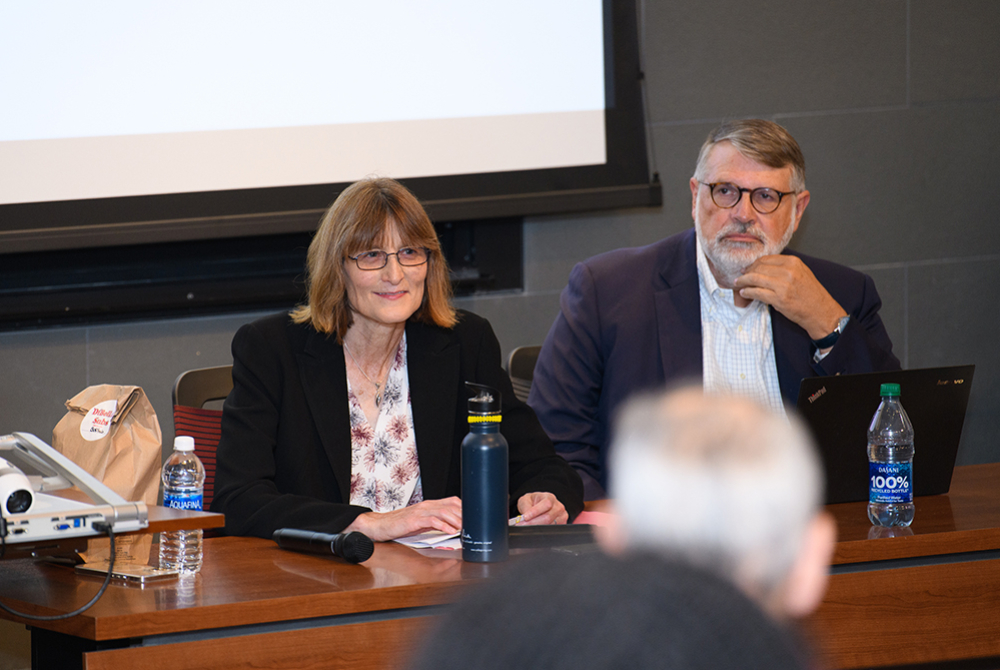
Lee Fennell (left), University of Chicago Law School’s Max Pam Professor of Law, and Thomas W. Merrill, Columbia Law School’s Charles Evans Hughes Professor of Law